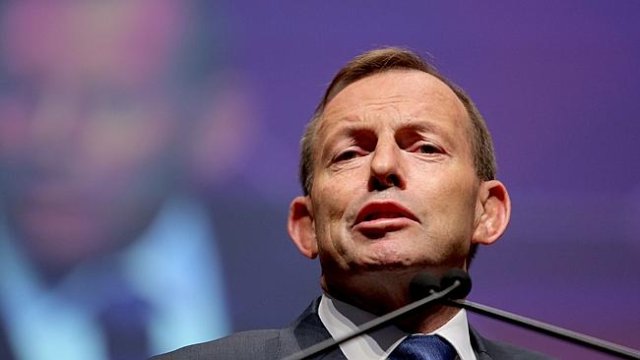
This is how Tony Abbott explained the new work-for-the-dole measures in the latest federal budget to the Queensland Chamber of Commerce: “That person can do up to four weeks of work experience with your business, with a private sector business, without losing unemployment benefits so it gives you a chance to have a kind of try-before-you-buy look at unemployed people.”
Abbott’s message for the assembled group of bosses was that they should embrace measures that would allow them to test “commodities” before they made a commitment, to get four weeks of free labour, paid for at below minimum wage by the government, in order to test the new bodies for their machines.
This budget signals once again exactly what the Liberal Party and the bosses they represent think of working people and young people in particular.
However, this policy of free labour for the owners of private businesses is in fact a retreat for the government. Their previous policy of six months without benefits for people under 30 was unable to be enaacted, thanks primarily to large mobilisations and a political crisis in the Senate, which stopped many of the government’s key measures from being passed.
While some in the media are saying that this budget represents a more “reasonable set of policies”, it still needs to be fought.
The introduction of forced labour under threat of severe social and economic sanctions is being implemented in the form of work-for-the-dole, and this policy will set a precedent for the use of government-subsidised, unpaid labour in the workforce.
The other key part of the attacks on young people comes in the form of re-animated fee deregulation. Christopher Pyne, after two defeats of his fee deregulation bill, has promised to have another go at pushing through legislation that would expose Australian students to huge increases in university fees.
Deregulation would likely devastate the living conditions of university students and create an increasingly indebted population, well before they enter the market as fulltime workers.
The federal budget assumes that fee deregulation will have been passed by January 1 next year, signalling that Christopher Pyne will try once again to pass these deeply unpopular changes.
Accompanying these changes is a raft of new measures to clamp down on people evading student loan debts. Currently it is possible to avoid repaying your HELP student loan if you move overseas. However, new government policies will allow them to collect debts from students more easily, pursuing them across the globe if necessary.
All these policies are driven by the same logic: drive up the price of education and then make it impossible to avoid paying back your debts. The logic is one of extraction, trying to get every dollar back from students who have dared to want an education in a world of commodified, marketised, neoliberal educational institutions.
Ultimately what this policy will secure is a two-tier university system, where wealthy students attend prestigious universities, which seek to raise fees and take on fewer students, and working-class students attend cheaper universities where they still rack up enormous debts.
What is the overriding policy of the federal government in this latest budget? In the face of a downturn in the Australian economy and the end of the mining boom, the Australian capitalist economy is in need of some pre-emptive stimulation.
Huge amounts of money are being poured into infrastructure and extractive projects to buoy the economy and the mining industry. This is a policy that is being increasingly favoured by the Australian political elite as a way of managing Australia through an upcoming period of economic stagnation.
However, these investments can’t be made from increased revenue. With a government focused on “fiscal responsibility”, huge investments in infrastructure and defence need to be balanced with cuts from the social services, health and education.
The policy is simple. Make the poor pay to jump-start the economy. Make young people pay to make sure that capital, the life-blood of the bosses and their economy, can accumulate at a “reasonable” rate. Make all of society pay for infrastructure policies that will only expand ecologically destructive industries in an attempt to transfer the costs for a crisis in the economy to a crisis in ecology. If you question it, the response is simple – these policies are vital to the economy, to the restoration of a stable economic order.
How should young people respond? Many people are saying that we should be grateful, that this budget is lighter than last year. Our response should be in the opposite direction. We should feel empowered by this back-sliding by the Abbott government and feel confident that we can assert that young people will not accept a single cut.
We will not accept policies that try to balance a crisis in their economy on the backs of the poor, of working people, of students. We don’t want to pay to fix their budgetary crisis or their crisis in accumulation. Students and young people deserve better than this.
Like the article? Subscribe to Green Left now! You can also like us on Facebook and follow us on Twitter.